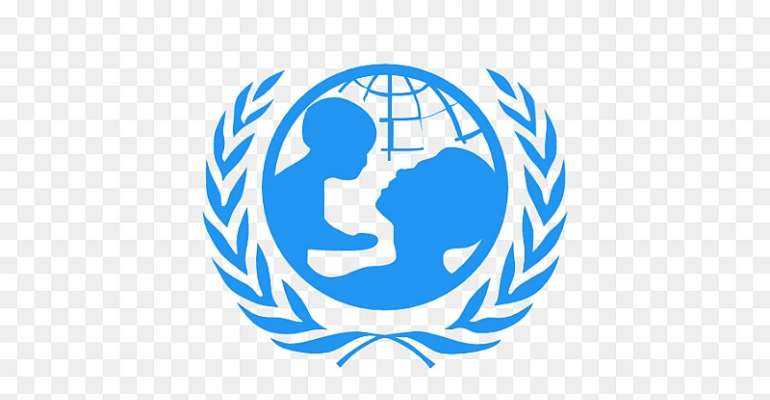X-raying the lapses of CTP in the North

ABRAHAM Lincoln, the 16th President of the United States of America in 1856 said, “Actions speak louder than words”. Similarly, a renowned author, Orison Swett Marden once said, “All who have accomplished great things have had a great aim, have fixed their gaze on a goal which was high, one which sometimes seemed impossible”. No matter the angles or dimensions deployed, child-education is a desideratum and distinctly, a sine qua non to building a secured, strong and thriving society considering that children are future leaders. ‘Nemo dat quod non habet’ rule literally says ‘nobody can give what they don’t have’. Thus, by UNICEF’s characteristic interventions on child-education through Cash Transfer Programme in developing nations, inarguably, the agency vis-à-vis its mandate is on track. However, great goals are rarely attained without hitches or hurdles.
First and foremost, ensuring that these providential funds are judiciously utilized for designed purposes is critically prominent. In fact, prompt accessibility of funds to bona fide beneficiaries devoid of corruption cannot be overemphasized. Thus, government must put a pragmatic mechanism in place for accountability, and possibly come up with legal regimens against shabby deals with the funds beginning from parents to fund managers alongside operating banks. Meddling with the funds should be measured as grievous injury to the society. Emphatically, disbursement must be expressly directed to mother-beneficiaries without intermediary; including community heads, traditional rulers, Almajiris etc. Their tasks albeit vital must have a clear boundary; enlightening neighbourhoods to leverage the scheme.
Imperatively, women that enrolled children, and consequently collected stipends must accountably produce the children in school throughout the term such that those pupils do not disappear after receiving the stipends. In other words, participating mothers are strictly liable for children’s attendance in school in exchange of stipends received. If not, some crooked persons may use some children to divert the funds to private pockets. With this mechanism, it doesn’t matter if a child belongs to someone else as long as the pupils are available in classrooms as beneficiaries till the end of the academic phase.
The most shocking finding in a 2-day EAC-media summit in Birnin-Kebbi, Kebbi State capital in northwest that seemingly represents the culture of the people is harsh discrimination against girl-child in poor families. The aberration manifested clearly in the area under appraisal. For example, despite UNICEF’s incentives, a mother of six children discriminatorily enrolled the only male child in school whilst the other five girls under the ages of ten are roaming and hawking in the streets. This is barbaric and unacceptable custom. Ultimately, the entire society stands to bear the repercussions widely.
Misguidedly, the underprivileged families believe girls are merely for child-bearing, hence, misconstrued girls-education as waste of time and resources. A question to the advocates of the awkward beliefs is; have they ever heard of the Nigerian former Worldbank boss, Dr. Ngozi Okonjo-Iwealla; a once upon a time girl-child that embraced education and consequently distinguished herself through it? And many other distinguished female highfliers. A Swedish model, Elin Nordegren, in general evaluation said, “Education is one thing no one can take away from you”. On the other hand, an African axiom affirms, “If you educate a man, you educate an individual. But if you educate a woman, you educate a nation”.
Article 28 of the United Nations Convention on the Rights of the Child (CRC) explicitly provides, “Every child has the right to an education”. Article 29 states, “Education must develop every child’s personality, talents and abilities to the full. It must encourage the child’s respect for human rights, as well as respect for their parents, their own and other cultures, and the environment.” Thus, the latter conscientiously, elaborately outlined goals on child-education.
Another question demanding answers is; could it be that political leaders viciously don’t want their subjects to embrace education possibly, for their unending slavery? This shot is regrettably necessitated by the classic schools privileged children from the same region attend while underprivileged townsmen don’t value education even with incentives. Why such a wide gap? It boils down to having two rival customs; for privileged and underprivileged. Whilst girls in the former can hit the acme of their dreams, the latter are psychologically caged with inborn potentials and destinies, pitilessly reserved for merely procreation and hawking. What a fallacy! Clearly, this is in concert, inhumanity to man.
In Chapter 2 of the 1999 Constitution of the Federal Republic of Nigeria, as amended, Section 18(1) provides, “Government shall direct its policy towards ensuring that there are equal and adequate educational opportunities at all levels; (3) - Government shall strive to eradicate illiteracy”. Furthermore, in Eshugbaye Eleko v Government of Nigeria (1931) AC 262 at 273, Lord Atkin characteristically, comparatively laid the repugnancy doctrine that applicable customs must pass repugnancy test; not repugnant to natural justice, equity and good conscience or incompatible either directly or impliedly with any law in force. So, on what ground would a state government contentedly sit and watch female-children not enrolled in schools under the cloak of customs?
Concluding, it is germane for indigenous stakeholders; political, traditional leaders to brainstorm. Tom Peters said, “True leaders don’t create followers, they create more leaders”. Any leader feeling threatened or insecure to cheer, empower and influence his subjects to embrace education is to say the least, a sadist, an opportunist and society’s major enemy. Indisputably, the world is outsized to contain everybody’s dreams and ambitions irrespective of magnitudes. The superlative mode of proactive security remains accessible education to the people. Otherwise, the neglected uneducated population may in future, constitute nuisances, characterized by unruly behaviours, negatively to the populace. Possibly, the multifaceted security challenges presently are the effects of yesteryears grievous omissions by political leaders on child-education.
Umegboro is a public affairs analyst and Associate, Chartered Institute of Arbitrators (United Kingdom). 08173184542-SMS only
